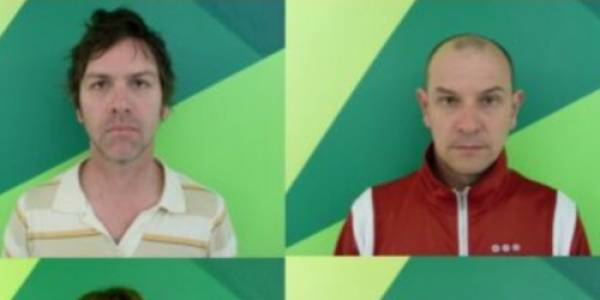“I’m like a football coach,” he says. “I only tell interviewers clichés, and I would never tell [them] anything interesting, even if I had something interesting to say, which I don’t.”
He’s selling himself short, to be honest. In conversation, Cox is full of the glinting wit that has long defined The Fauves’ discography: the mix of barbed self-depreciation and wry ‘Strayanisms that make a song like Bigger Than Tina such a classic.
When pushed to explain the band’s approach to performing live, for example, Cox gleefully unpicks all those rock’n’roll clichés you’ve heard a thousand times over, using the opportunity to pay out the group he has dedicated the last 20-something years of his life serving as the bandleader for.
“We got better [at playing] as time went on,” Cox says. “But we’ve always been ambivalent about the effort required for improvement. Although we have a lot of material, there are only about 20 songs that all four members can remember how to play at any given time, so in that sense constructing setlists isn’t too hard. Not a lot of our material is well-known or well-liked, so audience energy generally gets pretty low at certain points in the set.”
Indeed, hearing Cox tell it, you’d think Fauves shows were about as energised as a wake, full of boomers standing around in clusters drinking cheap ale and staring at their shoes, listening to songs about things that might better have gone ignored. “When there’s no one there, it’s hard not to be aware of the audience, or rather the lack thereof. Otherwise, the best way to approach an audience is to stare just over the tops of their heads at the back wall.”
It’s a fib, of course. No matter how Cox might want to make things seem, The Fauves have a dedicated and committed fanbase, a group of followers who have supported them since the release of their debut record Drive Through Charisma way back in 1993. One needs only to have checked in on the Fauves’ 1000th show back in 2007, or their 20th anniversary performance at The Espy the year after, to know that the group inspire true adoration in their audience. Again, not that you’d hear such good news from Cox.
“Australia is a homogeneous country. Shows only really vary according to the numbers in attendance. Crowd reactions to each song are very predictable. The setlist is just about what we know how to play and avoiding older material that we don’t want to play anymore.”
Ultimately, The Fauves are a band that do what they do for love: love for their material, for their fans, and, yeah, daggily, for each other. “We don’t like to rehearse but we are still best friends and sometimes doing band things is a good way to catch up. So we might rehearse for half an hour and then go and spend $400 on dinner.”
That love is so entrenched and important that the band’s creative process is as casual as they come. There won’t ever be a VH1 Behind The Music segment starring The Fauves; the band won’t ever have some colossal, traumatic falling out; and they won’t squabble over royalties or the butting of egoes.
They just do what they do because they want to do it, and write a record in as carefree a manner as they can. “We don’t really write a record per se. We just have a lot of songs and choose the ones we like. [Recent album] German Engines was recorded at the same time as Japanese Engines and we divided the songs up at the end.”
For that reason, Fauves fans can probably expect to be listening to output from the band for some time to come – although catching them live might be another story altogether. “We always write songs. It’s a hobby and we are a hobby band. But touring is a drag. If you want to see us play, come to Melbourne for our one show per year.”

